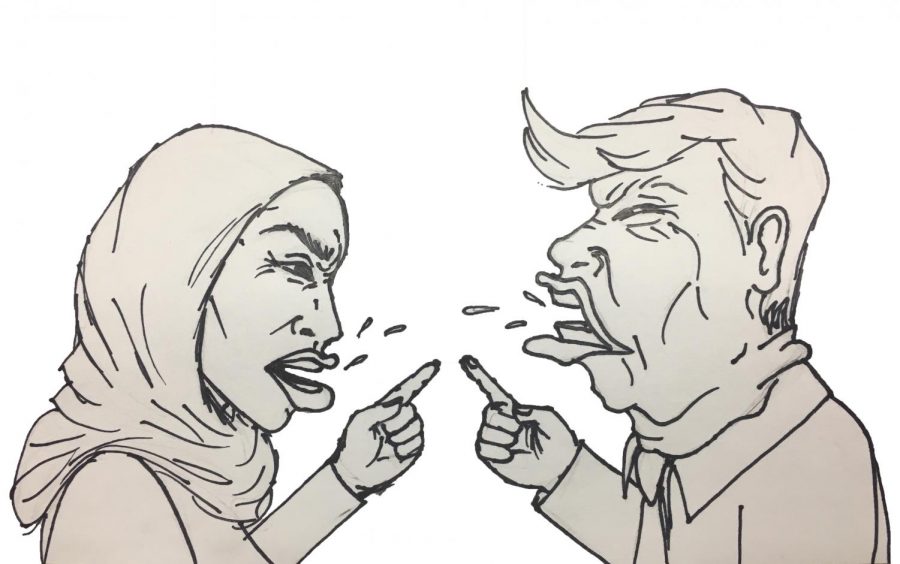The past week’s events sparked the interest of many and deepened the rift between major political leaders of opposing political parties.
Twitter War
Donald Trump tweeted a speech Rep. Ilhan Omar made at the fourth annual Valley Banquet for the Council on American-Islamic Relations, an organization dedicated to understanding and protecting the rights of Islamic Americans.
In Omar’s 20-minute-long speech, she made remarks about the unjust treatment of Islamic Americans as second class citizens.
Trump’s video was focused on eight seconds of that speech. In the speech, Omar said that CAIR was founded after 9/11 because of the possibility that Islamic citizens would be marginalized, compared to terrorists and treated as second-class citizens. The video featured Omar describing the attacks as “some people did something.”
Trump’s tweet was meant to incite outrage against Omar for minimizing the terrorist attacks, and as per usual, Trump’s followers delivered.
Omar took to Twitter to respond to the death threats and push for nonviolent rhetoric to stop from both the public and from the president.
Trump’s Error
Trump did something incredibly dubious by putting Omar on blast in that way: He used his platform to shame someone for a statement taken out of context. This is especially problematic because he is aware of what his followers are capable of and the dangers that can arise from that.
Second, Trump and many of his followers have continuously used these scapegoats to distract from the many flaws of their own rhetoric. This tactic is known as “whataboutism.”
“Whataboutism” is a term used to describe the tu quoque logical fallacy. This fallacy is a common way to deflect a claim rather than address it. It essentially means you attempt to discredit a person rather than say anything about their position or claim.
To Trump and many like him, whataboutism is used a lot in regard to fake news propaganda. They don’t have to prove that they’re good, they have to prove everyone around them is bad.
However, it goes both ways.
Omar’s Error
Omar was wrong about a couple of things: First, CAIR was founded in 1994, not as a response to the 9/11 attack. Second, it is wrong under any circumstances to passively address a terrorist attack in a public speech. Third, marginalizing right-wing extremists is a mistake, too. Omar’s followers may not be as volatile as Trump’s, but the threat of violent action is still there.
When you say “right-wing,” it can marginalize those on the right. Attacking them makes the distance between the left and right seem more prevalent.
My Thoughts
If any lessons are to be taken away from this, they are:
-
Don’t threaten someone’s life.
-
Don’t minimize a national tragedy.
-
Deflection makes you look stupid.
-
Marginalizing a person or group is wrong no matter who they are.
-
Converse rather than vilify. You learn more that way.
-
The ownership of a political view does not create nor justify wrongdoing.
Gage Northcutt can be reached at opinioneditor@theorion.com or @GageNorthcutt on Twitter.






